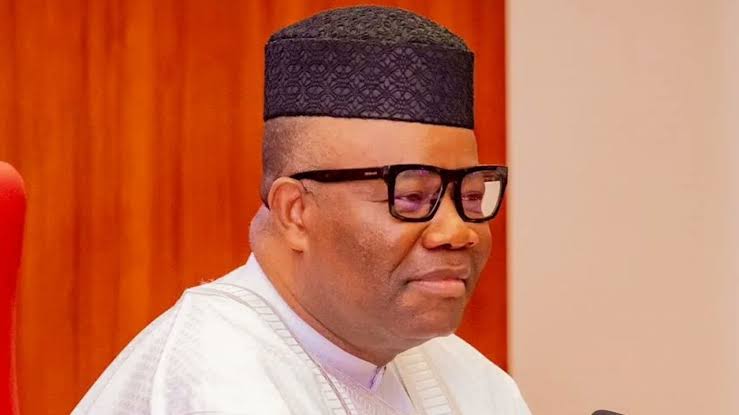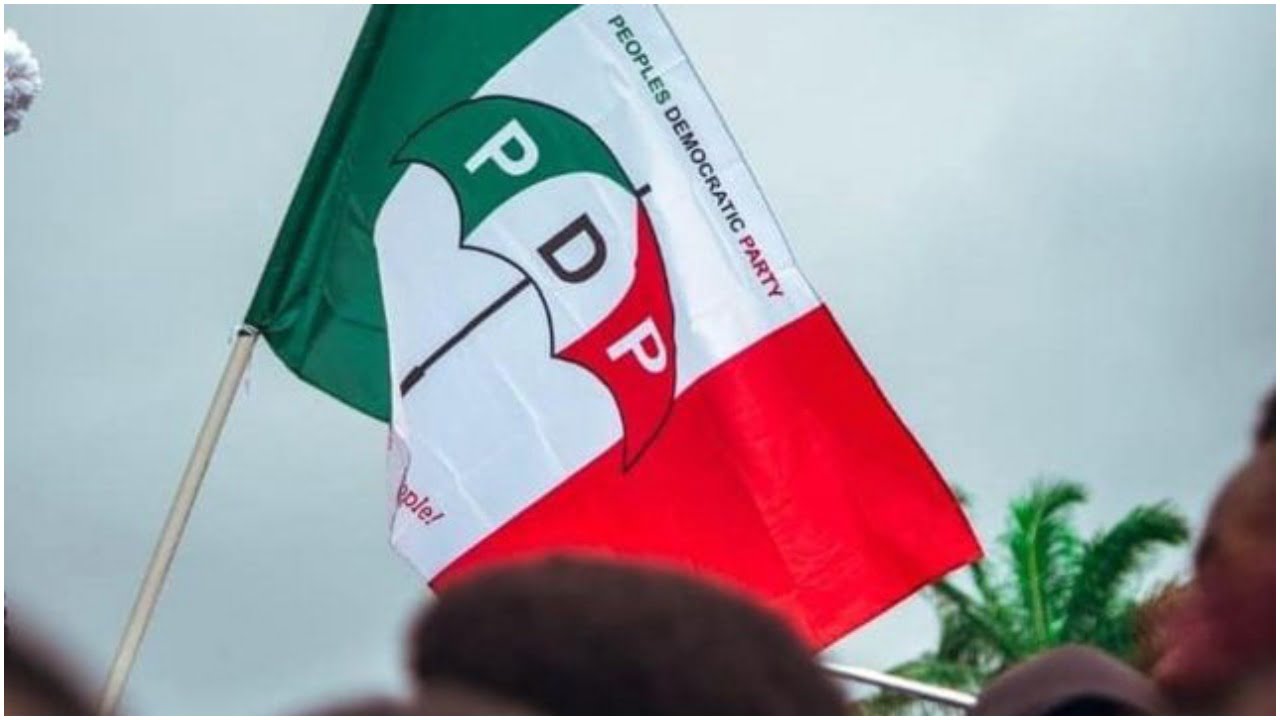The president of the Senate, Godswill Akpabio, clocked 100 days in office this week. He was elected to the position on June 13 in a…
The president of the Senate, Godswill Akpabio, clocked 100 days in office this week. He was elected to the position on June 13 in a keenly contested poll shaped by intrigues, acrimony and high-wired politics which observers described as a heavily monetized election due to the role money played in the race.
Akpabio polled 63 votes to defeat his lone challenger, Abdulaziz Yari, a former governor of Zamfara State, who secured 46 votes.
Soon after Akpabio emerged as the number three citizen, the jostle for principal offices also caused disquiet among senators in both majority and minority caucuses.
After days of intense lobbying and politicking, Akpabio on July 4 announced the emergence of principal officers, which he said was in line with agreements by the caucuses of the majority and the minority parties.
But a few hours after the announcement, Abdullahi Adamu, the then APC national chairman, disowned the list, saying the party was not involved in the process that threw up the principal officers.
Some top party chieftains saw Adamu’s action as lack of respect for President Bola Ahmed Tinubu, who was said to have endorsed the names of principal officers announced by the Senate President.
Notwithstanding the controversies that shaped the emergence of its leaders, the 10th Senate had a smooth take-off.
Unlike his predecessors, Akpabio has been piloting the affairs of the Red Chamber without a legislative agenda, which specifies areas the parliament intends to achieve with legislations.
He had promised to partner with the executive for the sole benefit of Nigerians.
Within three months, the 10th Senate under Akpabio had considered some requests seeking the parliament’s nod from the presidency, including loans, confirmation of nominees and budget amendment.
The Red Chamber sat through odd hours and non-legislative days to screen and confirm ministerial nominees. It closed plenary a few minutes to 11pm on August 7, ensuring that all businesses of the day were attended to. Out of the 48 nominees sent by President Tinubu, 45 were approved. The remaining three were rejected over security clearance.
Daily Trust reports that the Senate had, through oversight, intervened on some national issues.
Akpabio had led his colleagues in engaging the leadership of labour unions to suspend nationwide strikes by the Nigeria Labour Congress (NLC)/Trade Union Congress (TUC) and the Nigerian Association of Resident Doctors (NARD).
“Because of the intervention of the President of the Senate, who is the number three citizen and the assurance he has given us, our planned national protest has been cancelled while the decision on the ongoing strike would be taken as soon as we meet,” Dr Emeka Innocent Orji, NARD National President, had told reporters after meeting behind closed door with Akpabio and other Principal Officers of the Senate.
The Senate also considered a motion asking the federal government to halt the proposed 40 percent hike in electricity tariff. Following the parliament’s resolution, relevant authorities in the power sector suspended the planned tariff increment.
Similarly, the Red Chamber also declined to approve military action in Niger Republic.
Impeachment plot, other controversies
These gains were, however, overshadowed by the controversies that rocked Akpabio’s Senate presidency in the last three months.
The Senate is yet to resume from its long recess when the report of an alleged plot to impeach the Senate President filtered in, with pro and anti-Akpabio groups trading blames.
It was reported last weekend that some northern lawmakers had commenced moves to impeach Akpabio and had already met in Saudi Arabia to perfect the plot.
The anti-Akpabio lawmakers were said to be irked by the damage being done to governance by what they called imaginary impeachment plot targeted at pitching senators against President Bola Ahmed Tinubu.
They expressed worries that instead of creating synergy between the executive arm of government and the legislature for meaningful national development, Akpabio had created an imaginary war between the two vital arms of government.
Senator Elisha Ishaku Abbo (Adamawa) had, in a statement, claimed that loyalists of the Senate President sponsored the report to set northern senators against President Tinubu, urging Akpabio to call his camp to order.
But the camp of the Senate President claimed that some rivals regrouped using as a reason his apparent failure to check the lopsided appointments by the president in favour of the Yoruba, especially in the financial sector.
Sources within Akpabio group said some former northern governors and at least one from the South-South were behind the move.
“The main issue is our fear that Akpabio cannot check this Yorubanisation of the financial system that is going on now.
“Yes, the reason why you can see that northerners are mostly involved is that most of those being removed and replaced with Yoruba are northerners,” a source in Akpabio’s camp said.
He claimed that the main objective of the dissident senators was to enthrone a Senate president the group believes can checkmate President Bola Tinubu.
Akpabio had dismissed the report of the impeachment move, describing it as complete imaginations and sometimes laced with malice, saying the Senate under his leadership is stable.
‘Holiday allowance’ saga
The “holiday enjoyment allowance” remark by the Senate President on August 7 shortly before adjourning plenary for a long recess had attracted heavy criticism.
Apparently forgetting that the proceeding was being captured on live camera, Akpabio stated that, “to enable all of us to enjoy our holiday, a token has been sent to our various bank accounts by the Clerk of the National Assembly.’’
Upon being told by some of his colleagues that the live coverage of the event was still on, he quickly retracted, and said, “I withdraw that statement. To allow you to enjoy your holiday, the Senate president has sent prayers to your mailboxes to assist you to go on a safe journey and return.”
The “holiday bonus” comment came weeks after the lawmakers were allocated N70 billion to support their “working conditions” in an amended 2022 supplementary appropriation act.
Nigerians lampooned the Senate President, saying it was very unfortunate that such a statement could be made by Akpabio at a time when Nigerians are still waiting for any form of succour from the government, following the subsidy removal.
‘Let the poor breathe’
The sarcastic “Let the poor breathe” comment by Akpabio-led 10th Senate amid the prevailing economic hardship attracted widespread anger from Nigerians.
In an apparent solidarity with the masses, the Senate had passed an important resolution to cause the suspension of the proposed electricity tariff hike by the Nigerian Electricity Regulatory Commission (NERC) and the electricity distribution companies in a manner many considered ridiculous.
“The prayer is that, let the poor breathe, and Senator Mustapha has seconded that the poor should breathe. Those who are in support of the additional prayer that the poor should be allowed to breathe, say ‘ayes’ and those who are against say ‘nay,’” Akpabio had said jocularly.
In response, the senators said, “Aye”, to which Akpabio said, “The ayes have it! The poor must be allowed to breathe.”
This remark was spontaneously followed by laughter that resonated with the rest of the senators.
While some condemned the action as a brazen mockery of ordinary masses they are elected to defend, others said it represented sarcasm, a sense of triumph over an attempt to suffocate the poor and a response to the Senate president’s humorous gesture.
Akpabio’s media team had defended the statement, saying the ‘let the poor breathe’ remark “was to firmly reject any plan of increasing electricity tariffs for Nigerians, considering the ongoing economic challenges that Nigerians are faced with.
Speedy loan approval
In what seemed like the continuation of the 9th Senate’s practice, the Red Chamber under Akpabio speedily approved a request by President Tinubu to borrow $800m from the World Bank to scale up the national social safety net programme.
The parliament also gave accelerated approval to Tinubu’s request to amend the N819.5bn 2022 supplementary budget.
Both requests were approved 24 hours after Tinubu sent them to the parliament. Critics had decried the speed with which the borrowing requests were approved without thorough work.
Ministerial screening
The Senate had promised that it would be thorough in scrutinising the records, antecedents, suitability and competence of the individuals nominated to occupy ministerial positions.
While the Senators were praised by some for sitting through odd hours to complete the screening exercise before going on annual recess, they were, however, bashed by others for lack of proper grilling of nominees, some of whom, especially their former colleagues, were asked to merely take a bow and leave.
One nominee was asked to take a bow and go not because of her track record but simply for the reason that she got emotional.
Critics said the discrepancies noticed in the nominees’ records — such as one who is currently an NYSC member, another whose records showed that he did the national youth service at a time he was a member of the National Assembly as well as the one who started primary school at age of three — but not satisfactorily resolved before confirmation was a reflection of a job not thoroughly done.



